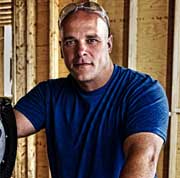Sustainability has become increasingly important in modern living as we strive to reduce our environmental impact and preserve resources for future generations. By making sustainable improvements to our homes, we not only contribute to a greener environment but also save on bills and enhance our quality of life.
This article will explore various sustainable home improvement options, including energy efficiency measures, renewable energy sources, water conservation techniques, and more, to help homeowners make informed decisions that positively impact their homes, wallets, and the environment.
1. Energy Efficiency
Energy efficiency is a critical aspect of creating a sustainable home and reducing energy bills. A key component of energy efficiency is proper insulation and sealing, which helps maintain a consistent indoor temperature by minimizing heat loss or gain.
Different types of insulation cater to different needs and budgets, such as:
- Fiberglass
- Cellulose
- Spray foam
When installed correctly, insulation can significantly reduce energy consumption and improve overall comfort.
Energy-efficient windows, featuring double or triple glazing and low-E coatings, further minimize heat transfer and contribute to a comfortable living environment. In Australia, experts say that over 80% of the heat of a home is gained through the windows. If you are looking to upgrade to energy-efficient windows in Perth, make sure you have the right glazing and E coating. It can significantly reduce your air conditioning bill.
Upgrading to Energy Star-rated appliances not only reduces energy usage but also leads to long-term savings on utility bills.
Finally, the installation of smart thermostats enables homeowners to program temperature settings based on occupancy patterns and track energy use, ultimately optimizing energy consumption and reducing costs.

2. Renewable Energy Sources
Renewable energy sources are essential for reducing our dependence on fossil fuels and promoting sustainable living.
Solar panels harness sunlight to generate clean, renewable energy with minimal environmental impact. Homeowners can choose between grid-tied systems, which allow for the sale of excess energy back to the grid, and off-grid systems which provide complete energy independence.
Another renewable energy option is small-scale wind turbines, which convert wind power into electricity. Before installing a wind turbine, homeowners should consider factors such as:
- Local wind patterns
- Zoning restrictions
- Potential noise or aesthetic concerns
Geothermal heating and cooling systems offer another sustainable alternative, using the earth’s stable temperature to efficiently heat and cool a home. While geothermal systems are incredibly efficient and have a low environmental impact, the initial installation costs and the need for specialized expertise may pose challenges for some homeowners.
3. Water Conservation
Water conservation is a vital aspect of sustainable living, helping to preserve our precious water resources and reduce utility bills.
One effective way to conserve water is by installing low-flow fixtures such as:
- Showerheads
- Faucets
- Water-saving toilets
These fixtures significantly reduce water usage without compromising performance or comfort.
Rainwater harvesting is another eco-friendly practice that involves collecting and storing rainwater using systems like rain barrels. Harvested rainwater can be used for various purposes, such as:
- Watering plants
- Flushing toilets
- Washing cars
This reduces the demand for treated water.
Greywater recycling is an innovative approach that involves reusing water from sources like:
- Sinks
- Showers
- Washing machines for non-potable purposes
Improve Your Home Today
By investing in energy efficiency, renewable energy sources, water conservation, and other eco-friendly practices, homeowners can significantly reduce their environmental impact and save on utility bills.
By implementing these changes, we not only create a better living environment for ourselves but also contribute to the well-being of our planet and future generations. Let’s embrace sustainability and transform our homes into eco-friendly havens that benefit our environment, our communities, and ourselves.











